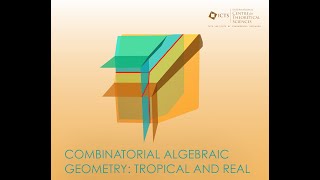
Proof of the existence of the minimal polynomial. Every polynomial that annihilates an operator is a polynomial multiple of the minimal polynomial of the operator. The eigenvalues of an operator are precisely the zeros of the minimal polynomial of the operator.
From playlist Linear Algebra Done Right

The definition of the characteristic polynomial (without using determinants). The Cayley-Hamilton Theorem.
From playlist Linear Algebra Done Right

Linear Algebra 5.4 Differential Equations
My notes are available at http://asherbroberts.com/ (so you can write along with me). Elementary Linear Algebra: Applications Version 12th Edition by Howard Anton, Chris Rorres, and Anton Kaul A. Roberts is supported in part by the grants NSF CAREER 1653602 and NSF DMS 2153803.
From playlist Linear Algebra

What does the fundamental theorem of algebra tell us about a polynomial
👉 Learn about zeros and multiplicity. The zeroes of a polynomial expression are the values of x for which the graph of the function crosses the x-axis. They are the values of the variable for which the polynomial equals 0. The multiplicity of a zero of a polynomial expression is the number
From playlist Characteristics of Functions

Advanced Linear Algebra Full Video Course
Linear algebra is central to almost all areas of mathematics. For instance, #linearalgebra is fundamental in modern presentations of geometry, including for defining basic objects such as lines, planes and rotations. Also, functional analysis may be basically viewed as the application of
From playlist Linear Algebra

Linear Algebra for Beginners | Linear algebra for machine learning
Linear algebra is the branch of mathematics concerning linear equations such as linear functions and their representations through matrices and vector spaces. Linear algebra is central to almost all areas of mathematics. In this course you will learn most of the basics of linear algebra wh
From playlist Linear Algebra

Linear Algebra 7.4 Optimization Using Quadratic Forms
My notes are available at http://asherbroberts.com/ (so you can write along with me). Elementary Linear Algebra: Applications Version 12th Edition by Howard Anton, Chris Rorres, and Anton Kaul A. Roberts is supported in part by the grants NSF CAREER 1653602 and NSF DMS 2153803.
From playlist Linear Algebra

FIT2.2.1. Example: Cubic Extension
Field Theory: Let a = 3 + 2^1/3 + 2 * 2^2/3. We show that 1) Q[a] = Q[2^1/3], 2) the minimal polynomial of a over Q is x^3 - 9x^2 + 15x - 25, and 3) a^-1 expressed as a polynomial in a over the rationals. The main technique from linear algebra is the minimal polynomial of a linear tra
From playlist Abstract Algebra

Nonlinear algebra, Lecture 1: "Polynomials, Ideals, and Groebner Bases", by Bernd Sturmfels
This is the first lecture in the IMPRS Ringvorlesung, the advanced graduate course at the Max Planck Institute for Mathematics in the Sciences. Topics covered: polynomilas, ideals and Groebner bases.
From playlist IMPRS Ringvorlesung - Introduction to Nonlinear Algebra

Matthew DeVilbiss, University of Illinois at Chicago
October 28, Matthew DeVilbiss, University of Illinois at Chicago Generic Differential Equations are Strongly Minimal
From playlist Fall 2021 Online Kolchin Seminar in Differential Algebra

Algebraic and Convex Geometry of Sums of Squares on Varieties (Lecture 4) by Greg Blekherman
PROGRAM COMBINATORIAL ALGEBRAIC GEOMETRY: TROPICAL AND REAL (HYBRID) ORGANIZERS: Arvind Ayyer (IISc, India), Madhusudan Manjunath (IITB, India) and Pranav Pandit (ICTS-TIFR, India) DATE: 27 June 2022 to 08 July 2022 VENUE: Madhava Lecture Hall and Online Algebraic geometry is the study o
From playlist Combinatorial Algebraic Geometry: Tropical and Real (HYBRID)

Visual Group Theory, Lecture 6.3: Polynomials and irreducibility
Visual Group Theory, Lecture 6.3: Polynomials and irreducibility A complex number is algebraic over Q (the rationals) if it is the root of a polynomial with rational coefficients. It is clear that every number that can be written with arithmetic and radicals is rational. Galois' big achie
From playlist Visual Group Theory

Dima Grigoriev, University of Lille
March 19, Dima Grigoriev, University of Lille Tropical recurrent sequences
From playlist Spring 2021 Online Kolchin Seminar in Differential Algebra

Algebra for Beginners | Basics of Algebra
#Algebra is one of the broad parts of mathematics, together with number theory, geometry and analysis. In its most general form, algebra is the study of mathematical symbols and the rules for manipulating these symbols; it is a unifying thread of almost all of mathematics. Table of Conten
From playlist Linear Algebra

Invariant theory and optimization by Ankit Garg
Discussion Meeting Workshop on Algebraic Complexity Theory  ORGANIZERS Prahladh Harsha, Ramprasad Saptharishi and Srikanth Srinivasan DATE & TIME 25 March 2019 to 29 March 2019 VENUE Madhava Lecture Hall, ICTS Bangalore Algebraic complexity aims at understanding the computationa
From playlist Workshop on Algebraic Complexity Theory 2019

Nonlinear algebra, Lecture 12: "Primary Decomposition ", by Mateusz Michalek and Bernd Sturmfels
This is the twelth lecture in the IMPRS Ringvorlesung, the advanced graduate course at the Max Planck Institute for Mathematics in the Sciences.
From playlist IMPRS Ringvorlesung - Introduction to Nonlinear Algebra

